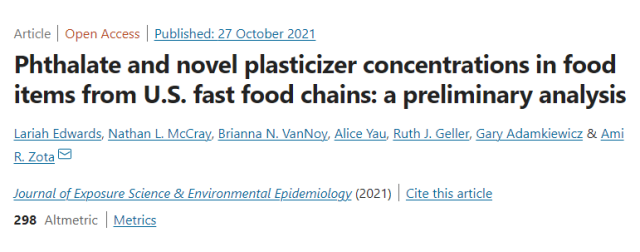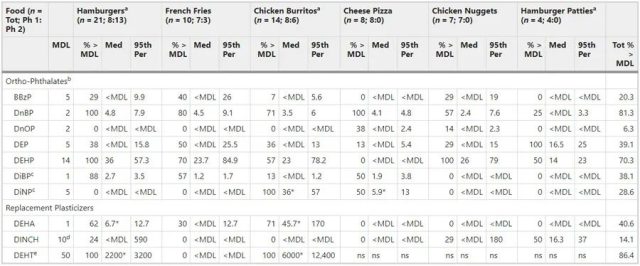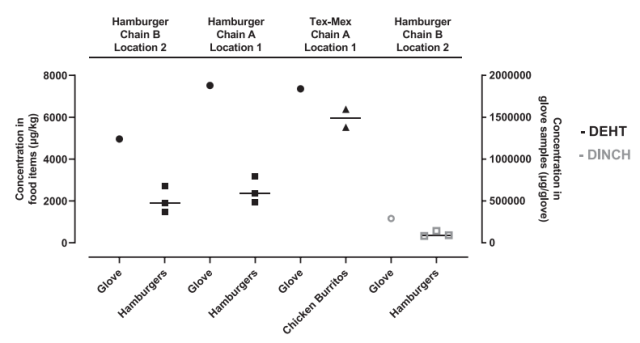Do you still eat fast food if there are 10 deadly chemicals in them?
- Normal Liver Cells Found to Promote Cancer Metastasis to the Liver
- Nearly 80% Complete Remission: Breakthrough in ADC Anti-Tumor Treatment
- Vaccination Against Common Diseases May Prevent Dementia!
- New Alzheimer’s Disease (AD) Diagnosis and Staging Criteria
- Breakthrough in Alzheimer’s Disease: New Nasal Spray Halts Cognitive Decline by Targeting Toxic Protein
- Can the Tap Water at the Paris Olympics be Drunk Directly?
Do you still eat fast food if there are 10 deadly chemicals in them?
- Should China be held legally responsible for the US’s $18 trillion COVID losses?
- CT Radiation Exposure Linked to Blood Cancer in Children and Adolescents
- FDA has mandated a top-level black box warning for all marketed CAR-T therapies
- Can people with high blood pressure eat peanuts?
- What is the difference between dopamine and dobutamine?
- How long can the patient live after heart stent surgery?
Do you still eat fast food if there are 10 deadly chemicals in them?
As we all know, the occurrence and development of various diseases are directly related to behavior, diet , and environment. One of the reasons why people have been unable to control the occurrence and development of diseases for many years is diet, eating a large amount of food that should not be eaten, leading to the increasing incidence of many diseases.
Phthalates are commonly used to make plastic materials more flexible. It can also improve the durability and service life of plastics. There is increasing evidence that these chemicals can disrupt normal hormone function and cause health problems, including heart disease and reproductive problems. In addition, they can cause an increase in childhood asthma and obesity.
October 27, 2021, researchers from University of Washington in Nature sub-published ” Journal of Exposure Science and Environmental Epidemiology ” journal published an article entitled “Phthalate and novel plasticizer concentrations in food items from US fast food chains: a preliminary analysis “Research papers.
The study showed that phthalate chemicals have been detected in the foods of popular fast food chains such as McDonald’s, Burger King, Pizza Hut, etc. This substance can disrupt normal hormone function and cause health problems, and is related to neurodevelopment, metabolism and reproductive disorders .

In the study, the researchers analyzed products from McDonald’s, Burger King, Pizza Hut, Domino, Taco Bell, and Chipotle stores in Texas.
The researchers obtained 64 food samples of burgers, French fries, chicken nuggets, chicken rolls and cheese pizza from the chain store, and also collected plastic gloves used by three pairs of staff.
The analysis found that 81% of the samples contained the phthalate DnBP and 70% contained the phthalate DEHP . These two chemicals are related to human fertility and reproduction problems, and also increase the risk of children’s learning, attention and behavior disorders.

Concentration in various commodities
Researchers pointed out that the foods with the highest phthalate concentrations are meat , such as burgers or chicken rolls, while cheese pizza has the lowest content.
In addition, the researchers also found other plasticizers DINCH, DEHT and DEHA in other samples, which are becoming alternatives to phthalates.

DEHT and DINCH detected in burgers, chicken rolls and gloves
A few animal studies have been cited to show that DEHT and DINCH do not cause reproductive problems in mice. However, the study also noted that in vitro data indicate that these chemicals can damage cellular pathways, which may result in adverse human health outcomes .
Glove tests showed high levels of DEHT. Researchers believe that contact with plastic food packaging and gloves may be the cause of phthalate contamination. Although researchers still do not know the full effects of eating foods contaminated with plasticizers, it is certain that they can cause or aggravate health and even reproductive problems.
The researchers said that the study found that phthalates and other plasticizers are widely present in prepared foods of fast-food chains in the United States. This finding means that many consumers will be exposed to potentially unhealthy chemicals during meals.
Paper link:
https://doi.org/10.1038/s41370-021-00392-8
Do you still eat fast food if there are 10 deadly chemicals in them?
(source:internet, reference only)
Disclaimer of medicaltrend.org
Important Note: The information provided is for informational purposes only and should not be considered as medical advice.



